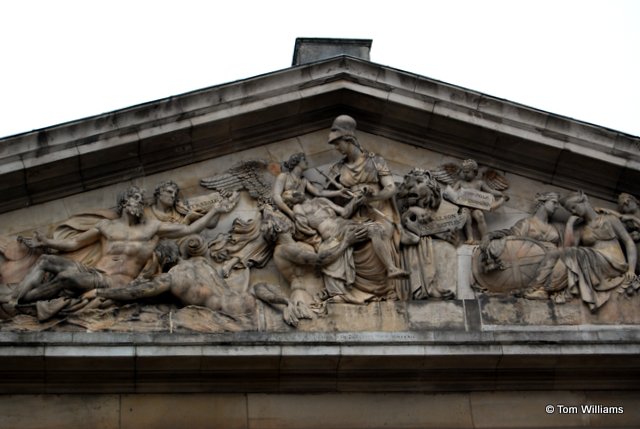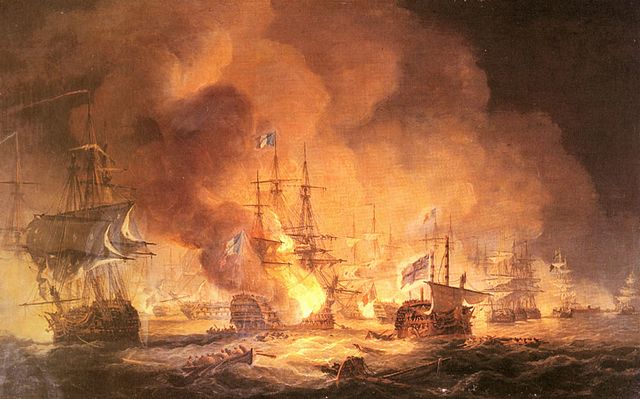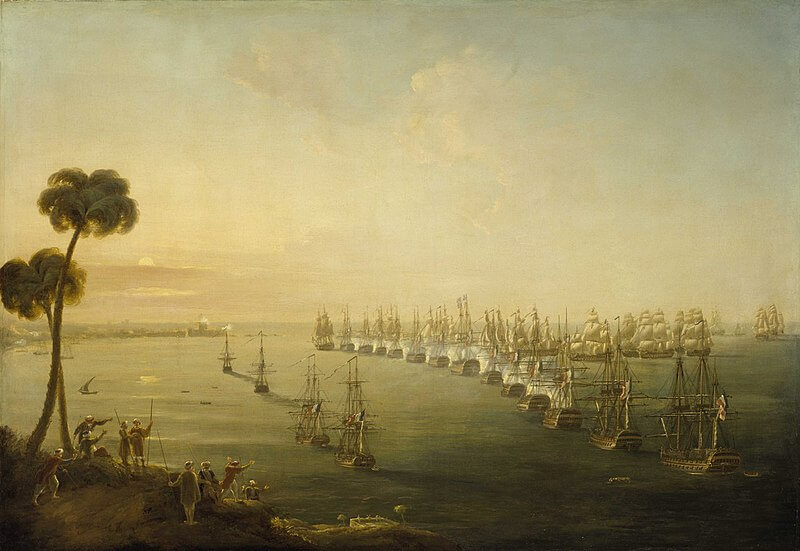Last week was the anniversary of the Battle of the Nile back in 1798. Nowadays we associate Nelson so firmly with Trafalgar that his other victories can be overlooked. Back in the early 19th century, though, the Nile featured prominently on memorials like this one at Greenwich.

As with many battles, the name isn’t geographically accurate. The battle of the Nile didn’t actually take place at the Nile but at Abū Qīr Bay near Alexandria. Napoleon had invaded Egypt, his troops travelling in an enormous French fleet. After the troops had been successfully landed, his warships remained on the Egyptian coast ready to protect his lines of supply. They moored near the shore in the shelter of the bay.
Conventionally, naval battles were fought broadside to broadside, one ship against another. The French fleet was immensely strong. L’Orient, the French flagship mounted 118 guns. The French anchorage meant that the ships’ broadsides were facing out to sea, allowing an enormous concentration of fire to be brought to bear on any force attacking from the Mediterranean.
The British fleet that discovered the French lying at anchor was, on paper, vastly inferior. However, the British realised that the French had anchored slightly too far out into the open sea, allowing a channel between their line and the shore. The British split their force, some ships sailing between the French and the shore while others sailed between the shore and the open sea. With an onshore wind, the French were unable to manoeuvre away from their anchorage and the British sailed slowly down the line, each French ship being engaged one after the other by at least two British ships firing simultaneously from both sides.
The tactic was overwhelmingly successful. Of the 13 French ships of the line, nine were captured and two destroyed. No British ships were lost.
The most dramatic moment of the battle was the loss of L’Orient which caught fire and exploded when the flames spread to the powder magazine. The Captain’s young son had been ordered by his father to stand at his position until his father told him to move. His father having died, the son is said to have remained on deck and died. His death is commemorated in the poem, Casabianca:
The boy stood on the burning deck
Whence all but he had fled.

After the battle, the British had complete naval dominance in the Mediterranean. With his lines of supply cut off, Napoleon’s plans to use Egypt as a jumping off point for further invasions were in disarray. Napoleon fled back to France the following year and the French army lingered on in Egypt until surrendering to the British in 1801.



No comments:
Post a Comment